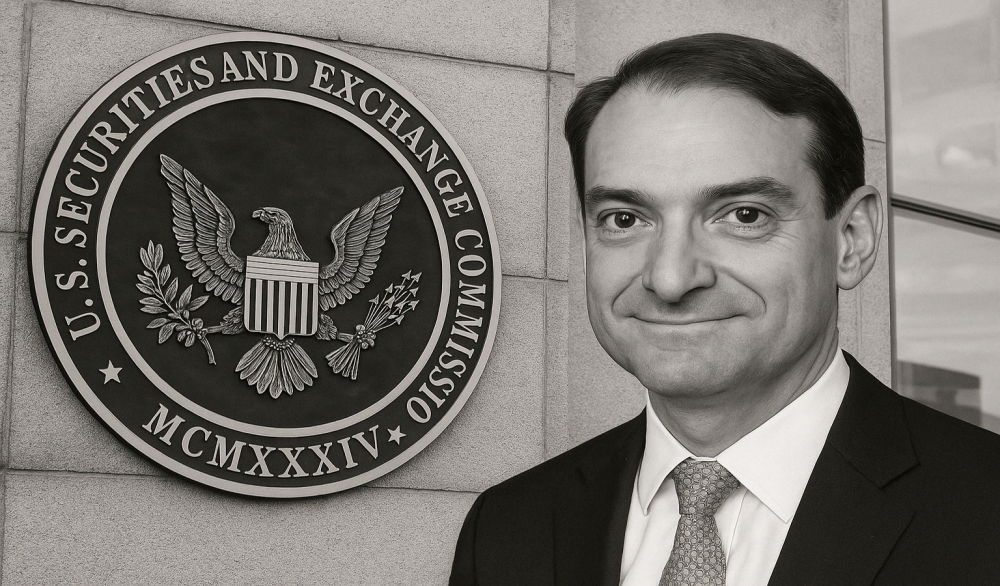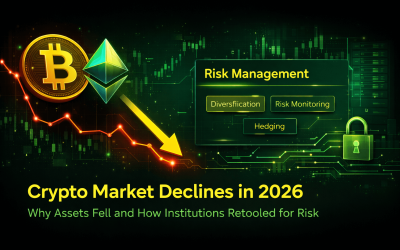Paul Atkins has officially taken office as the 34th Chairman of the U.S. Securities and Exchange Commission (SEC), ushering in a new era of crypto regulation. Appointed by President Donald Trump and confirmed by the Senate, Atkins brings a pro-market, crypto-forward vision to an agency that has spent the last several years cracking down on digital assets. His confirmation signals a likely pivot in the SEC's posture—from aggressive enforcement to constructive engagement with the blockchain and cryptocurrency industries.
A Political Power Shift
Sworn in on April 21, 2025, Atkins' appointment came after a narrow 52–44 Senate vote and a delay due to complex ethics filings. With a history of investing in crypto assets and consulting for digital asset firms, Atkins has deep ties to the industry. His selection by Trump is part of a broader rollback of what many in the crypto space considered an overreaching regulatory agenda under former SEC Chair Gary Gensler.
Gensler's tenure was defined by more than 100 enforcement actions targeting the crypto sector. Atkins, in contrast, promises a regulatory reset—prioritizing innovation, transparency, and formal rulemaking over punitive actions.
Who Is Paul Atkins?
A seasoned SEC veteran, Atkins served as Commissioner from 2002 to 2008 under President George W. Bush. Known for his free-market views and skepticism of excessive regulation, he has long advocated for cost-benefit analysis and minimal regulatory burden. After leaving the Commission, he founded Patomak Global Partners, advising major financial firms and crypto companies.
Atkins has also served as co-chair of the Token Alliance and sat on the board of the Chamber of Digital Commerce. His financial disclosures reveal between $1 million and $6 million in crypto-related holdings, which he has pledged to divest to avoid conflicts of interest. This makes him arguably the most crypto-experienced leader ever to head the SEC.
A Pro-Crypto Regulatory Agenda
The SEC, under acting chair Mark Uyeda, already began shifting its tone ahead of Atkins’ confirmation by:
- Dismissing or scaling back enforcement actions against firms like Coinbase, Robinhood, and Uniswap
- Reversing an accounting rule that would have forced financial firms to treat crypto as liabilities
- Halting a proposed rule requiring DeFi platforms to register as securities exchanges
- Launching a new Crypto Task Force to engage with industry
Atkins has made clear that his top priority is building a "rational, coherent, and principled" regulatory framework for digital assets. Unlike the Gensler-era approach of setting precedent through enforcement, Atkins plans to use formal rulemaking to provide clarity.
A key proposal likely under discussion is a safe harbor for new token projects, allowing them time to decentralize before being subject to securities laws. This aligns with the long-standing vision of Commissioner Hester Peirce and could finally give startups the legal breathing room to grow responsibly.
The SEC's New Direction on Crypto
Under Atkins, the SEC is expected to:
- Clarify when digital assets are considered securities
- Approve more crypto exchange-traded funds (ETFs)
- Define compliance requirements for custodians and exchanges
- Collaborate with Congress to craft legislation
Signals already suggest a major philosophical shift. Officials have hinted that proof-of-work mining and stablecoins may not fall under securities laws. The agency's willingness to drop high-profile lawsuits further illustrates a movement toward guidance rather than punishment.
Still, Atkins has emphasized that this is not a regulatory free-for-all. Fraud, market manipulation, and clear legal violations will continue to be pursued. Investor protection remains central to the SEC’s mission.
What This Means for the Crypto Industry
The Atkins era offers a more stable and optimistic environment for:
- Crypto investors, who now face less regulatory uncertainty
- Startups, which can innovate without fear of arbitrary crackdowns
- Institutional players, who may reenter the market with greater confidence
- Developers and entrepreneurs, who can build with clearer compliance pathways
The market has already responded favorably. Bitcoin recently surged to near-record highs, driven by investor confidence that crypto will become more integrated with mainstream finance. With over 70 crypto-related ETF applications awaiting review, the new SEC could unlock billions in new capital.
Global Implications
Atkins' leadership could also help the U.S. regain its competitive edge in the global crypto race. In recent years, harsh regulatory moves pushed talent and capital overseas. A rationalized framework akin to Europe's MiCA rules could reverse that trend, making the U.S. more attractive to blockchain innovators.
However, resource challenges loom. Government-wide budget cuts could shrink the SEC's staff, potentially delaying rulemaking and oversight capacity. Balancing reform with operational capacity will be key.
Industry and Lawmaker Response
Crypto industry leaders, lawmakers, and advocacy groups have largely welcomed Atkins’ appointment. Figures like Senator Cynthia Lummis and Rep. Tom Emmer praised the move, anticipating collaborative policymaking and regulatory clarity.
Meanwhile, organizations like the Blockchain Association and Chamber of Digital Commerce see Atkins as a partner in creating balanced regulations. Coinbase’s Chief Policy Officer called his confirmation “the dawn of a new era.”
Critics, however, remain cautious. Senator Elizabeth Warren and other skeptics have warned of potential conflicts of interest due to Atkins' industry ties. Consumer protection advocates stress that loosening rules must not come at the expense of investor safety.
Key Takeaways
- Paul Atkins was sworn in as SEC Chair on April 21, 2025, signaling a major regulatory pivot.
- His leadership marks a shift from enforcement-heavy tactics to pro-innovation rulemaking.
- Crypto projects, investors, and institutions can expect greater clarity and fewer surprise crackdowns.
- Safe harbor rules, clearer token classifications, and ETF approvals are likely on the horizon.
- Industry leaders and lawmakers largely support the change, though some skepticism remains.
Conclusion
Paul Atkins' appointment represents a significant moment for U.S. crypto policy. His approach aims to replace ambiguity with clarity, enforcement with engagement, and fear with opportunity. While challenges remain, this transition could ultimately position the U.S. as a global leader in digital asset innovation.
For crypto businesses and investors navigating this regulatory evolution, solutions like Vaultody offer the tools needed to manage, protect, and grow digital assets securely and compliantly. Explore how Vaultody can help you stay ahead in this rapidly transforming landscape.









 Copy link
Copy link